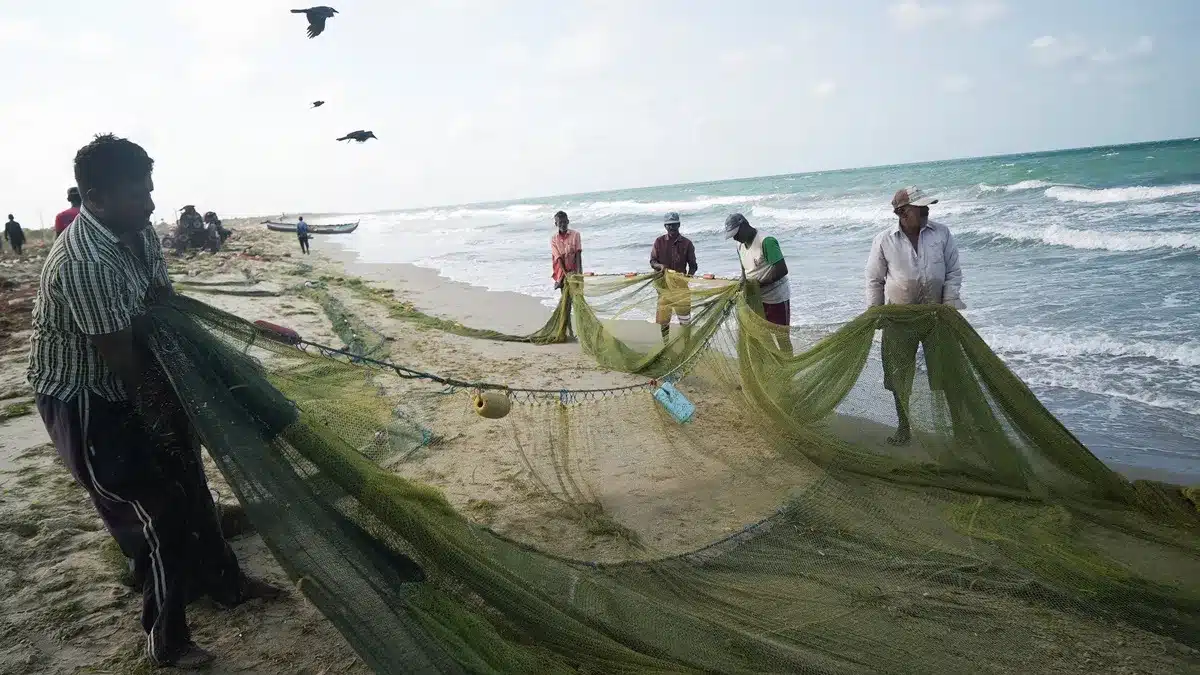GST Set at 5% for Fishing Nets, Seafood Products, and Aquaculture Inputs

In a significant move to bolster the fisheries sector, the GST Council approved major reforms during its 56th meeting on September 3, 2025. These changes align with Prime Minister Narendra Modi‘s vision of creating a “Good and Simple Tax” system. The revised GST rates aim to reduce operational costs, enhance competitiveness in both domestic and export markets, and ultimately benefit millions of fish farmers and stakeholders reliant on fishing and aquaculture for their livelihoods.
Revised GST Rates for Fisheries Products
The new GST structure introduces substantial reductions in tax rates for various fisheries products. Notably, the GST on fish oils, fish extracts, and prepared or preserved fish and shrimp products has been slashed from 12% to 5%. This change is expected to make value-added seafood more affordable for consumers in India while boosting the competitiveness of the country’s seafood exports. Additionally, essential equipment for aquaculture, such as diesel engines, pumps, aerators, and sprinklers, will now be taxed at a reduced rate of 5%, down from the previous range of 12% to 18%. This significant reduction is anticipated to lower operational costs for fish farmers, thereby enhancing their profitability.
Furthermore, critical chemicals used in pond preparation and water quality management will also see a tax decrease to 5%. This includes ammonia and micronutrients, which are vital for effective feed management and pond conditioning. The lowered GST rates on preserved fish, shrimp, and mollusks are expected to strengthen India’s position in the global seafood market while promoting increased domestic consumption of safe and hygienically processed seafood. The tax on fishing gear, including rods and nets, has also been reduced from 12% to 5%, benefiting both recreational fishers and small-scale aquaculture farmers.
Impact on the Fisheries Sector
India’s fisheries and aquaculture sector has rapidly evolved into one of the world’s fastest-growing industries, playing a crucial role in food security, farmer incomes, and rural livelihoods. Currently, the sector supports the livelihoods of over 30 million people and positions India as the second-largest fish producer globally, with a production volume nearing 19.5 million tonnes for the 2024-25 period. Additionally, India holds the title of the largest shrimp exporter worldwide, with seafood exports surpassing ₹60,000 crores in the 2023-24 fiscal year, contributing significantly to the nation’s foreign exchange reserves and strengthening its Blue Economy.
The recent GST reforms are poised to directly benefit various stakeholders within the fisheries sector, including fish farmers, aquaculturists, small-scale fishers, women’s self-help groups, and cooperatives. By easing their financial burdens, these changes aim to improve rural livelihoods and foster a more sustainable and productive fisheries sector. The revised GST rates are set to take effect on September 22, 2025, marking a pivotal moment for the industry.
Supporting Sustainable Practices
The reforms also extend to job work services in food and agro-processing, including seafood, with the GST rate reduced from 12% to 5%. This adjustment is expected to provide relief to processing units, further supporting the industry. Additionally, composting machines, essential for producing organic manure and promoting eco-friendly pond management, will now be taxed at 5%. This initiative encourages sustainable aquaculture practices, aligning with the government’s broader vision of a robust Blue Economy that contributes to the development of a prosperous and developed India, or Viksit Bharat.
These comprehensive reforms signify a crucial step toward enhancing the productivity, competitiveness, and sustainability of India’s fisheries sector. By reducing operational costs and promoting environmentally friendly practices, the government aims to create a thriving ecosystem for fish farmers and stakeholders, ultimately benefiting the economy as a whole.
Observer Voice is the one stop site for National, International news, Sports, Editor’s Choice, Art/culture contents, Quotes and much more. We also cover historical contents. Historical contents includes World History, Indian History, and what happened today. The website also covers Entertainment across the India and World.

